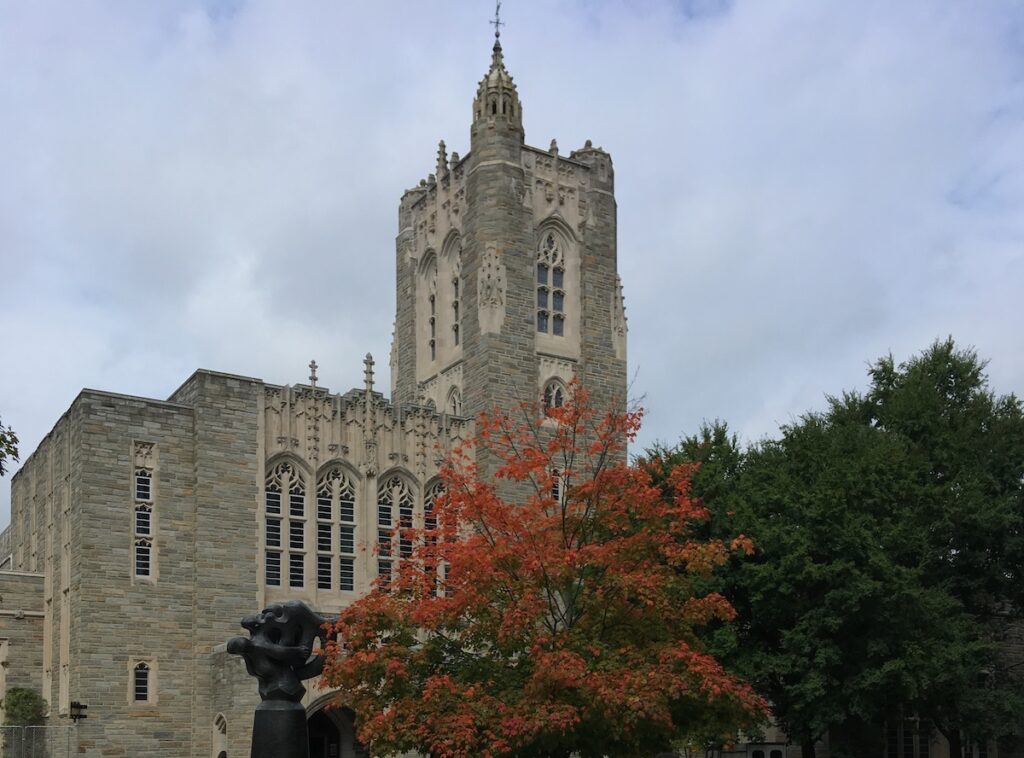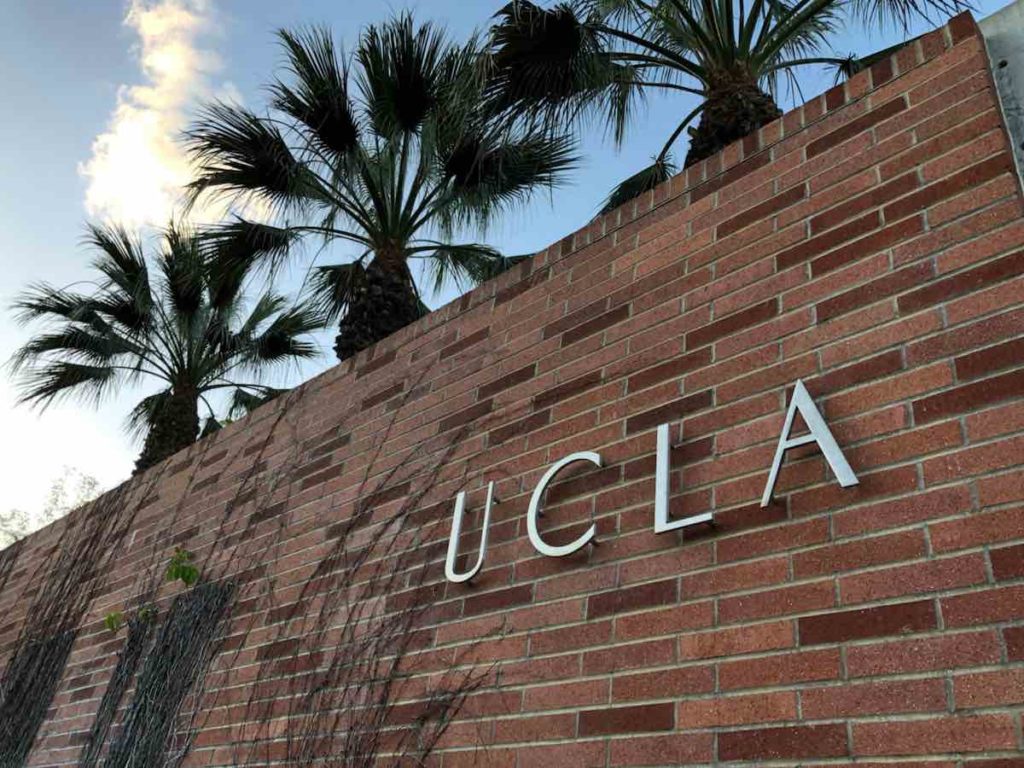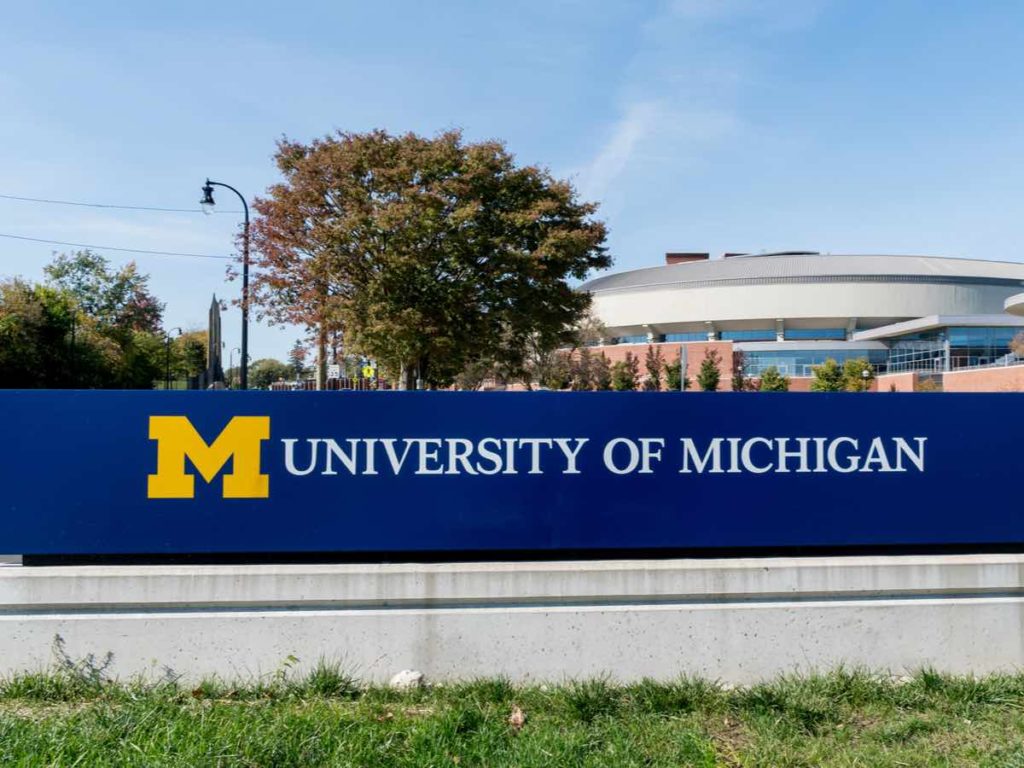Admissions committees are far more likely to be excited about a student who had mediocre grades freshman year and went on to receive stellar grades than they are to admit a student who thrived academically freshman year and then declined.
Top 9 Colleges That Don’t Look at Freshman Year Grades
According to a report that appeared in the Education Digest, freshman high schoolers are at higher risk than other students because of the transition from middle school to high school, which is frequently marked by poor academic performance, increased absences and heightened behavioral problems.
While the 9th grade is several years away from the senior year of high school, what students do during this part of their high school career can impact their admissions chances when it’s time to go to college.
It’s a good thing that some institutions of higher education do not look at freshman high school grades — they usually take into account grades obtained during the sophomore and junior years, with some considering senior grades, too.
Many of these schools, surprisingly, are some of the most prestigious around.
Visiting a school’s website, in some instances, is enough for you to learn whether or not it checks out freshman-year grades.
Emailing the admissions office, of course, is always an option. Or you may also pay your high school counselor a visit because no one else on your high school campus knows college admissions better than him or her.
There is never a shortage of helpful information on forum sites — some of them are the result of research, while others are obtained from the personal experiences of participants while applying to colleges.
It doesn’t mean, however, that it’s fine to get terrible grades during your first year of high school since you are planning on going to a college that does not consider them.
Always keep in mind that your high school GPA and class rank, both of which are academic admissions factors, can be affected by the numbers you get during the 9th grade.
While college admissions officers are happy to see students who exhibit an upward trend in academic performance, they are more inclined to admit those who demonstrate consistency throughout their high school careers.
The following are some colleges and universities that don’t look at freshman-year grades:
Carnegie Mellon University

When reviewing applications, admissions officers at Carnegie Mellon University check out grades obtained by applicants throughout their high school career.
However, when it’s time to compute their GPAs, the only ones taken into account are grades obtained during the sophomore and junior years of high school.
Carnegie Mellon University is one of the most highly-ranked and selective institutions out there. Among admits, 45% have high school GPAs of 4.0 and 89% graduated in the top tenth of their high school class.
CSU System
For as long as you are applying to any of the 23 campuses of the California State University (CSU) system, there is no need to worry that your bad performance in the 9th grade will keep you from getting in.
Acceptance rates at the different schools of the CSU system can range anywhere from 38% to 90%.
Due to the fact that the different campuses compute an applicant’s GPA using only the sophomore and senior grades, having a nightmarish freshman year at your high school is unlikely to disadvantage you in the admissions process.
Johns Hopkins University

Ranked #7 in National Universities 2022 to 2023 by US News, Johns Hopkins University is one of the most prestigious and selective institutions of higher education in the land — it has a single-digit acceptance rate of only 8%. Up to 70% of all students accepted to it have a high school GPA of 4.0.
It’s true that Johns Hopkins University takes a look at the grades of applicants throughout their high school career, including their grades in the 9th grade. However, they’re the least important grades that its admissions officers check out.
McGill University

Thinking about being an international student but fearing that your academic performance in your freshman year of high school might keep you from being one? Then consider sending your application to McGill University — it requires applicants to have a minimum GPA of 4.0 or an equivalent unweighted average during the last 2 years of high school.
A public institution located in Quebec, Canada, McGill University has an acceptance rate of 46% for international students. Over 12,000 students attending it are from abroad, comprising around 30% of its population.
Michigan State University

According to Michigan State University, which is ranked #77 in National Universities 2022 to 2023 by US News, high school GPA is an important admissions factor. However, it adds that it pays special attention to recent trends in one’s academic performance. So, in other words, it focuses more on an upward grade trend.
Some other factors taken into account by admissions officers at Michigan State University include the strength of the high school curriculum and extracurriculars. As of this writing, the public institution is test-optional.
Princeton University

It’s true that Princeton University has a very low acceptance rate of 4% and the majority of admits have high school GPAs of 4.0.
However, the Ivy League is known to conduct an arduous process of getting to know the story behind the grades obtained by applicants, including the ones earned during the freshman year of high school.
Needless to say, there’s no need to fear that your phenomenal academic performance during your sophomore, junior and senior years of high school is going to be eclipsed by some bad grades in the 9th grade.
Stanford University

Because of its prestige and competitiveness (it’s ranked by US News #3 in National Universities 2022 to 2023 and has a low acceptance rate of 4%), Stanford University is often mistaken by many as an Ivy League. It’s not!
Still, it’s just like Princeton University (an actual Ivy League) when it comes to getting to know applicants — the private institution, which is located in Stanford, California, devotes time to knowing the reason behind the less-than-impressive first-year high school grades of some of its most desirable applicants.
UC System

The University of California (UC) system is made up of 9 campuses.
No matter where you apply in the system, you can rest assured that your grades during your freshman and senior year of high school will not be factored in the computation of your high school GPA — only your sophomore and junior grades will count.
But since some of the campuses in the UC system are quite selective, including UCLA and UC Berkeley, having high grades throughout your high school career can give you an edge in the admissions process.
University of Michigan – Ann Arbor

Around 56% of applicants admitted to the University of Michigan – Ann Arbor have high school GPAs ranging from 3.75 to 3.99. On the other hand, about 31% of them have GPAs of 4.0.
With only a fifth of all applicants receiving an acceptance letter per admissions cycle, there is no denying that UMich is a selective institution of higher education.
But, for a long time now, it’s one of the few schools known to not consider freshmen high school grades when computing the GPAs of applicants.
Read our review of UM here.
Disclaimer: The views and opinions expressed in this article are those of the authors and do not necessarily represent those of the College Reality Check.
I graduated with BA in Nursing and $36,000 in student loan debt from the UCF. After a decade in the workforce, I went back to school to obtain my MBA from UMGC.
Do Colleges Look at Freshman Year?
How much do freshman year grades count for college? Learn the truth about how admissions committees evaluate your child’s first year

Introduction
Course selection: How colleges look at academic rigor
GPA: Do freshman grades matter?
Extracurricular activities: demonstrate a deep commitment
Introduction
A sinking feeling sets in among many high school students as they embark on the college application process. Some might think, “I messed up freshman year of high school” and, with it, any chance of acceptance at their dream college.
Moving from in-class pop quizzes to ten-page papers, or from a small neighborhood middle school to a multi-county high school is no easy feat. Adjusting to a new environment can make what purports to be the “easiest” year in high school one of the hardest.
But how much do colleges look at freshman year?
Colleges closely evaluate freshman year grades and activities, but not in the ways you might think. Here’s how ninth grade does matter: freshman year is the foundation for the rest of your child’s high school career.
The courses your child takes early in their career, as well as their performance in them, determine the rest of your child’s high school course load. If they join extracurriculars freshman year, they may become a leader in those extracurriculars as an upperclassman. If they take honors physics at the start of high school, they may enroll in AP Physics senior year. And most colleges consider your child’s overall high school GPA, meaning the grades they receive freshman year do have weight.
But here’s the nuance. Many universities follow a “holistic admissions” process, which means they’re not simply looking at grades or your child’s ACT or SAT scores. They’re seeking a sense of your child’s narrative. Has your child made the most of the academic and extracurricular opportunities available at their school? Did they improve or grow during high school?
In that vein, admissions officers consider both your child’s GPA and their freshman course load in the context of their overall high school transcript. That means that excelling later in high school can balance weak academic performance freshman year. If your child recovers from a weak freshman year, admissions officers will see this as positive evidence of their ability to adjust to new academic demands and expectations, an ability that will come in handy during college and beyond.
This applies to extracurriculars as well. Admissions officers look for depth rather than breadth in your child’s involvement. If they don’t participate in many activities freshman year, your child can still go on to lead or excel in a couple of extracurriculars.
Let’s consider three core elements of your child’s freshman year of high school in more detail. These elements are:
- GPA
- Course selection
- Extracurricular involvement
Read on to learn about the weight each of these elements has on your child’s college applications as well as how to make up for weak freshman year performance during their remaining time in high school and within their applications.
Course selection: How colleges look at academic rigor
The courses your child takes freshman year matter as much if not more than the grades they receive in those courses.
Why? While most colleges don’t have minimum GPA requirements, they do want your child to have completed a minimum amount of coursework. And at most high schools, freshman courses are prerequisites for more advanced classes. In addition, colleges want to see that your child has challenged themselves by taking tough courses offered by their school. Achieving a high GPA by taking easy courses is not viewed as favorably as achieving a high GPA in hard classes.
On top of that, the courses your child takes freshman year are the foundation for the courses they take in the rest of high school. Choosing courses wisely will help set your child up to take the best classes for their strengths and passions later on.
For instance, if your child is interested in art but their high school doesn’t have an honors or AP course in that subject, your child shouldn’t skip the painting elective freshman year. Instead, your child should enroll in it and find other ways to deepen that interest later on, through community college classes, summer programs or scholarships, or extracurricular activities.
How to bounce back if your child took the “wrong” courses freshman year
If your child didn’t take an ideal course load freshman year, don’t worry. They can still bounce back by choosing to take a challenging course load during the rest of high school.
Or, perhaps your child missed a freshman prerequisite for a class they would like to take. They should talk to their guidance counselor to see if there’s a way to test into that class. Your child can also look for summer, online, or community college options.
How your child can strengthen the rest of their application
If extenuating circumstances influenced your child’s course load freshman year, they should, if at all possible, have their guidance counselor address this within their letter of recommendation. And if your child attends a high school that lacks challenging course options for freshmen, your child’s guidance counselor can also provide that context in their letter.
If your child missed out on taking a course in a subject area that they are comfortable with or interested in, they might consider self-studying for an AP Exam in that area, as a high score on one of those tests will demonstrate your child’s proficiency with the subject. Many students choose to self-study for AP English Language or Literature exams, which test essay-writing ability rather than content, for instance.
GPA: Do freshman grades matter?
Admissions committees are far more likely to be excited about a student who had mediocre grades freshman year and went on to receive stellar grades than they are to admit a student who thrived academically freshman year and then declined.
Colleges understand that your child might enter high school not yet knowing what they’re passionate about or that they might be coming from a middle school that didn’t prepare them as well as their classmates’ junior high schools did. Taking the first year as a chance to scope out their new world, learn its ways, and then ace it is much better than starting strong and losing interest or momentum. An underdog story is never a bad one!
Most universities will consider your child’s overall high school GPA, but will always consider their GPA and transcript together, meaning that an admissions officer will see if your child’s grades have improved over time.
While most admissions officers will not simply forgive low freshman year grades, they will be more understanding of them than they will be of low grades in upper-level coursework. Your child’s sophomore, junior, and senior year coursework is more predictive of your child’s ability to succeed in college courses.
There are some universities that do not even factor your child’s freshman year grades into the GPA they consider during admissions. University of California (UC) schools, for instance, consider a GPA that is calculated from freshman summer through junior summer, meaning both your child’s freshman and senior year grades don’t factor into their GPA at all. Nevertheless, UC admission officers do take freshman and senior year course choice into account. In the past, Stanford University and McGill University have also considered applicant GPAs minus freshman year grades.
In short, your child’s freshman year grades may be considered during admissions but only as part of the overall picture of their academic achievement—never in isolation. A weak freshman GPA will not rule your child out as an applicant.
How to recover from bad freshman year grades and get into college
If your child is worried about their weak freshman year GPA, they should focus on improving it by excelling in their remaining high school coursework. And don’t assume your child should take easy classes in order to cushion their GPA.
Many high schools weight grades in AP, IB, and other honors classes—meaning that a high grade in one of those classes will especially offset earlier lower grades. Plus, the types of classes your child takes still matter—frequently more than the grade itself.
Admissions officers often read applications regionally, meaning the person reading your child’s application will know something about your school. If it’s common knowledge that Environmental Science is an easy A while AP Chemistry is a challenging option, your child will be rewarded for an A- in Chemistry more than an A+ in the former.
Your child might also consider enrolling in online coursework or classes at your local community college. In addition to potentially boosting your child’s GPA (if their high school factors outside coursework into their calculation of GPA), this can demonstrate your child’s commitment to their education and help them excel in their remaining high school classes.
Holistic admissions: Looking at the bigger picture
Remember that admissions officers make holistic decisions based on your child’s entire application. If your child received weak grades early on in high school but went on to attain excellent grades, receive high test scores, write distinct college essays, complete a handful of extracurriculars, and develop relationships with teachers and administrators who write glowing letters of recommendation, then admissions officers are likely to view low grades freshman year not just as a “fluke,” but as a setback your child overcame to thrive in high school. If your child is stressed about their GPA, they should use that energy to focus on other parts of their application.
If the challenges of your child’s freshman year were truly significant, they might consider writing about it in their Common App essay, Common App Additional Information section, or supplemental college essays. But that’s totally optional. Your child shouldn’t feel that they have to apologize for or explain low freshman year grades within their essays or elsewhere in the application.
Another way to explain freshman year grades is through your child’s counselor’s recommendation letter. Yale University, for instance, tells students that an explanation from a counselor or another school official is more valuable than notes in the Common App Additional Information section. A counselor can explain how your child went on to succeed despite their circumstances, demonstrating resiliency and drive, without seeming defensive, as your child might if they wrote it themselves.
Extracurricular activities: demonstrate a deep commitment
Getting involved with clubs, societies, and teams freshman year gives your child a chance to dive deep into an area of interest. Joining early can help them achieve and assume leadership roles within those organizations as an older student. However, sophomore or junior year is not too late to become more involved in your child’s high school, town, or state community.
If you’re concerned about your child’s extracurricular involvement
If your child hasn’t yet involved themself in extracurriculars, how can they bounce back during their remaining time in high school?
Your child should not overcorrect for a low-activity freshman year by joining as many activities as possible later on. They risk seeming scattered and unfocused. Instead, they should select few extracurriculars that are meaningful to them. Anywhere from two to six extracurriculars can be a great number, but it’s the quality and not the quantity of their involvement that matters.
What activity will give your child the chance to really make the most of their talents and interests? If, during freshman year, your child devoted most of their time to one demanding primary activity, such as a sport or musical instrument, they should not feel they have to take time away from that activity simply to pad their list of extracurriculars.
Is there a way to supplement your child’s core extracurricular activity? For example, if they spend most of their time playing soccer, they might find time to volunteer at soccer camps for younger children or to referee youth games. Or, if they play violin in a youth orchestra, they might share their talent by performing or giving lessons in a local venue like an elementary school or a retirement home. If your child pursues what is truly meaningful or exciting to them, this will come across in their application.
Summer and school breaks are also opportunities for your child to become more involved in the community. Over the summer, they might follow an interest they haven’t found an outlet for within their school community.
Maybe they’re interested in politics, science, or creative writing. They could volunteer for a political campaign, find an internship at a local hospital, or write a play. It’s even better if your child can then somehow bring that involvement back to their school community in the fall. For example, your child might recruit other students to get involved politically or direct a production of their play with the high school theatre troupe.
How your child can strengthen the rest of their application
If your child didn’t join many extracurriculars freshman year because they were also balancing employment, familial responsibilities, or medical issues, they can mention this in their application. And the “extracurriculars” they reference in their Common App Activities section or UC Activities & Awards section do not only have to be typical after-school activities. For example, a part-time job or religious involvements should be included.
Final thoughts
Admissions officers want to know who your child is as a student and community member. They recognize that your child is not defined by their freshman year. The best way to recover from a “weak” freshman year is to give admissions officers a full picture of who they are now.
Dr. Shirag Shemmassian is the Founder of Shemmassian Academic Consulting and one of the world’s foremost experts on college admissions. For nearly 20 years, he and his team have helped thousands of students get into top programs like Harvard, Stanford, and MIT using his exclusive approach.

